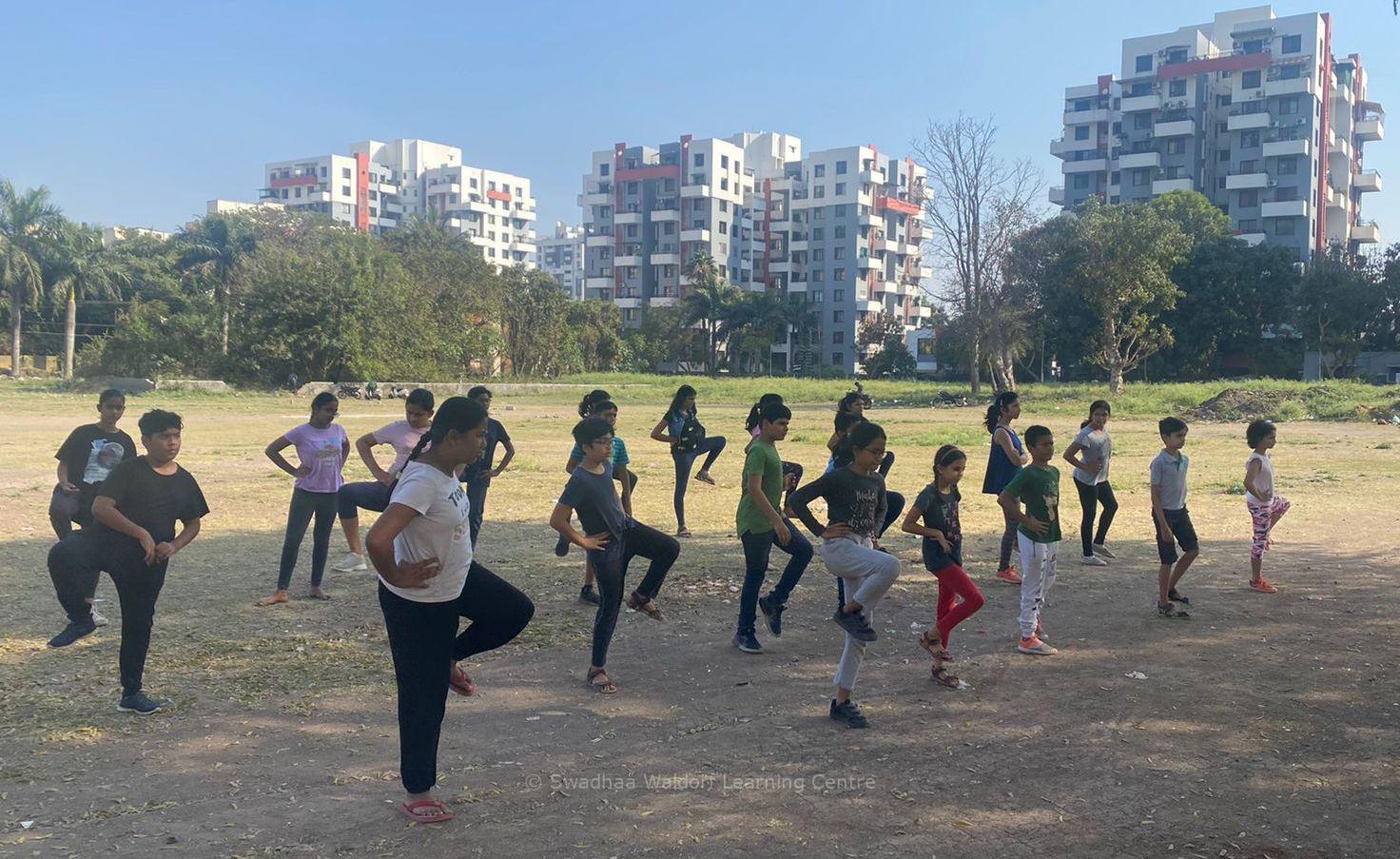)
In Waldorf education the Middle School curriculum enhances students reasoning capacities in their developmental transition from active doers and explorers to critical thinkers with acute skills in reasoning, dialogue and synthesizing information from multiple sources to draw reasoned conclusions. In the Middle School, students take an active role in the interpretation and translation of information. Students engage in the scientific process of exploration, logical reasoning in conceptual mathematics, and the study of codified systems of governance. They learn the physical laws of the universe and study the changes and migrations of cultural development in various historical eras. In all these, students engage in the processes of reformulating data, constructing theories, debating complex issues in light of influencing contexts and drawing conclusions based on well founded reasoning.
In the social realm, students’ interpersonal skills and communicative abilities are bolstered by opportunities to engage in projects with practical and “real world” applications. They learn business models to manage operations for the school’s institutional events, they organize fund raisers and take an active involvement in supporting humanitarian advocacy groups. The Middle School class field trips take on more ambitious scope that includes physical challenges (extreme ropes courses, rock climbing, caving trips, outdoor wilderness camping and more) and travel that test students and allow them to build confidence in their capabilities as well as create memorable bonding experiences.

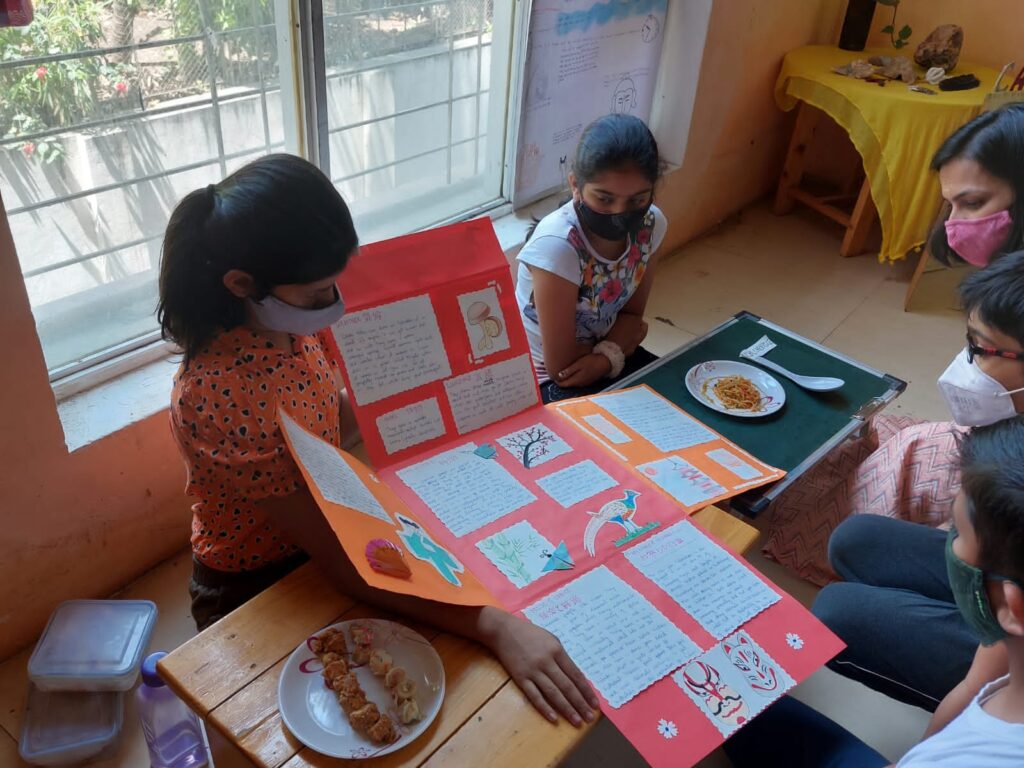
In sixth grade, the curriculum focuses on the children’s growing orientation towards the outer world. As new capacities for thinking emerge, the children are led to understand causal relationships at work in the world. The students can be challenged and are capable of high standards in their school work. The sixth grade curriculum serves to ground the students, to inspire them to venture out toward the unknown and to offer an introduction to their quest in life. In Mathematics, students learn the exact constructions with compass and straightedge, learning the mathematical properties of shapes as well as simple formulas. Physics is introduced through art and music. Roman law, black and white drawings, gymnastic exercises designed to model how one overcomes obstacles, skills to “compare and contrast” and astronomy are also introduced into the curriculum at this time.
Sixth Grade Curriculum:
Seventh graders navigate two worlds: they inhabit an introspective side as well as an active, outer, exploring perspective. At this age they have a growing need for independence and solitude; they feel enhanced emotional sensitivity and experience a strong need for social connection. Their adolescence is marked by many physical, emotional and cognitive changes including energetic outbursts, and a motivating desire for exploration alternating with periods of emotional listlessness or increased self absorption.
The seventh grade block curriculum studies the Renaissance, the Age of Exploration, the Scientific Revolution and the Reformation in order to activate the students’ developing engagement with and questioning in the world. The students study the innovative thinkers of these eras whose thirst for knowledge was coupled with a fearless need to question and defy authority. The class teacher guides the students in projects that enable them to take an active role in the outer world. They respect and nurture the student’s inner emotional lives while simultaneously challenging their cognitive and creative skills.
Seventh Grade Curriculum:
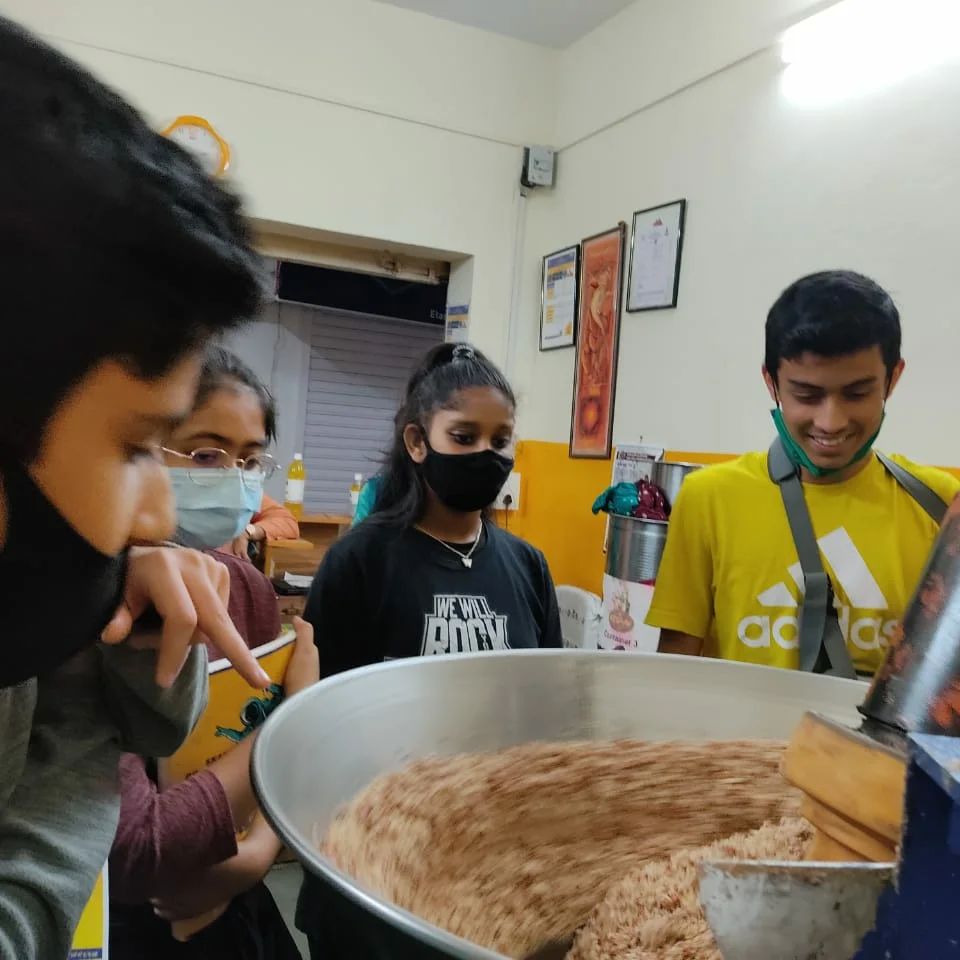
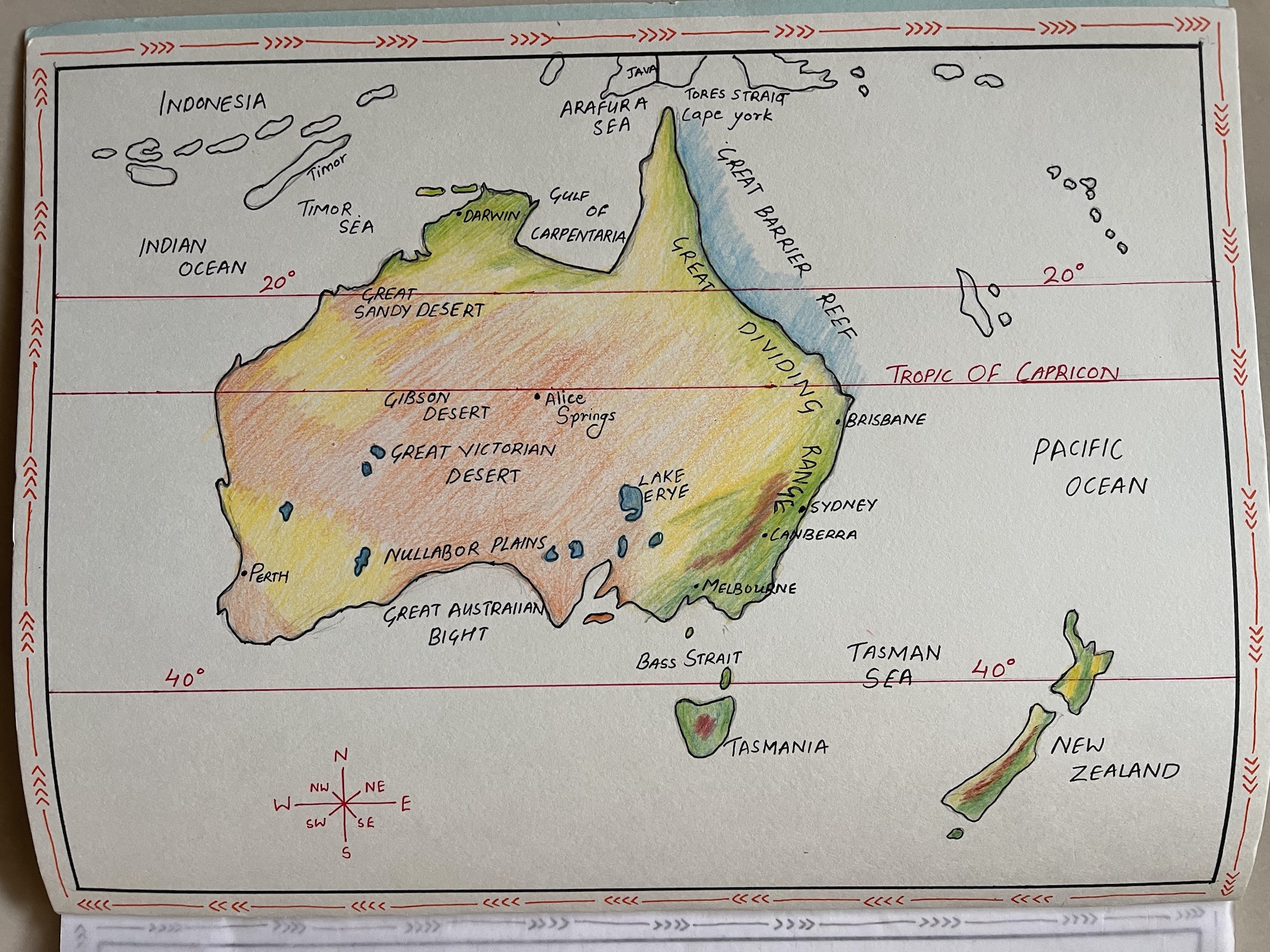
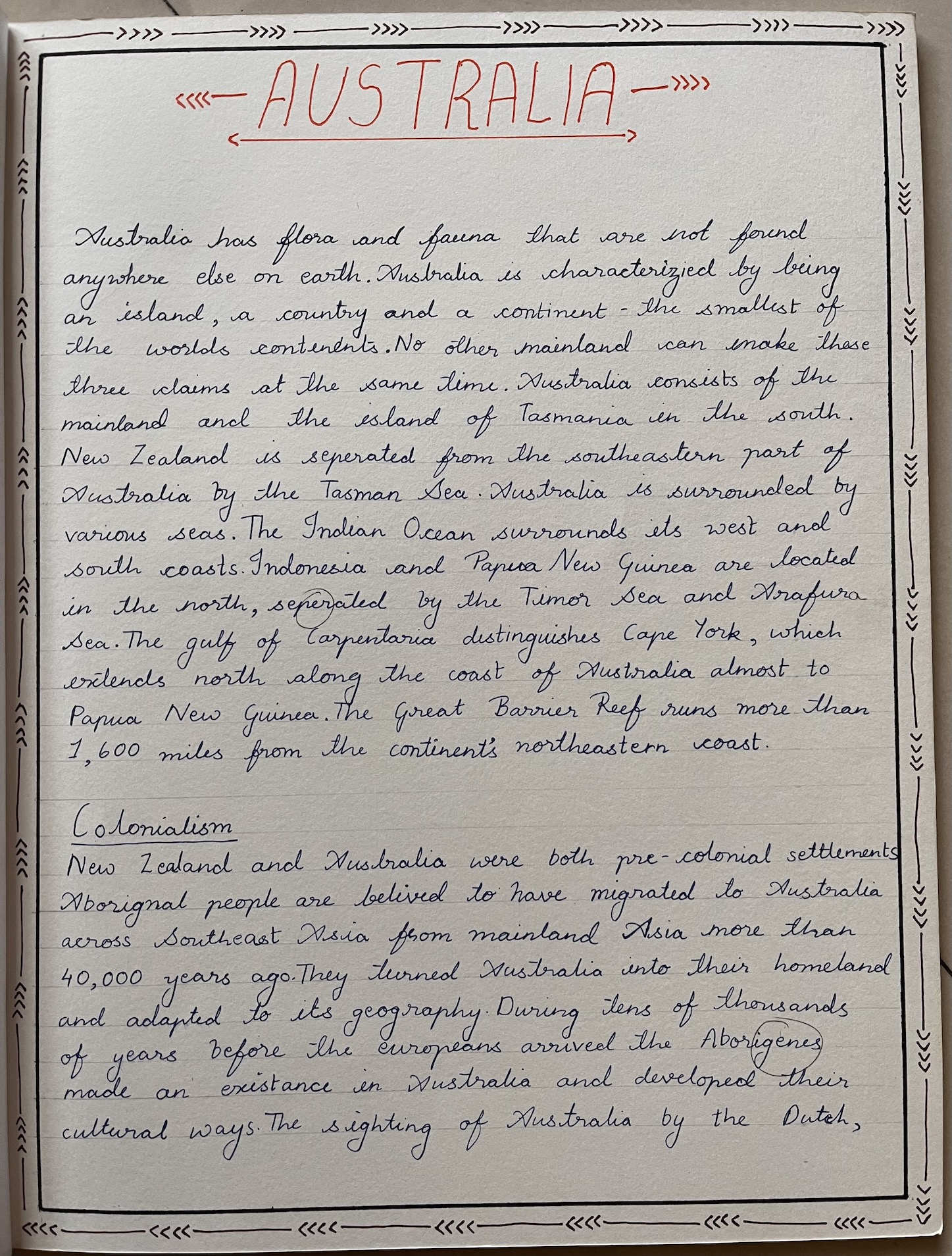
A Waldorf eighth grade experiences a gradual but significant shift from the presentation of a subject solely from the teacher to the class, to the mutual consideration of a subject by teacher and class together. A sense of community develops in which speaking becomes more thoughtful and listening more attentive. With the awakening capacity for logical thinking and free, independent judgment, the eighth grader now wants to be in the world more than ever before. They want to do, to discover, to know, and to find relevance in their studies by finding connections with the outside world.
Throughout this year, the students continue to expand their sense of place in the world. They plunge into the Age of Revolution, and embark on a study of noteworthy individuals who have found the courage to follow their passions in revolt against the status quo. In addition to their continued inquiry into scientific phenomena and experimentation, students study the lives and struggles of scientists and inventors who first discovered chemical and electrical laws. These studies ground students in the human aspect of scientific thought, while providing a picture of the profound effects of modern technology upon society and culture.
Eighth Grade Curriculum:
Given the huge step these students are about to take in the world, the curriculum is designed to inspire passion and highlight the incredible potential of the human mind and soul. It is our hope that our students will graduate with compelling questions that will continue to fuel their love of learning for years to come.
Instructions in Sanskrit language begins in the first grade with a mini-immersion class once a week. Natural aptitude for language is wonderful at this age; we cultivate it through songs, dances, verse, games and seasonal ditties. The experiential nature of Sanskrit class continues through the grades, with reading, writing and grammar taught, beginning in the fourth grade. Classes are conducted as much as possible in Sanskrit itself. While the primary aim is to create a cultural experience that nourishes the child’s curiosity about the world and strengthens his patience, a basis for future proficiency is also formed.
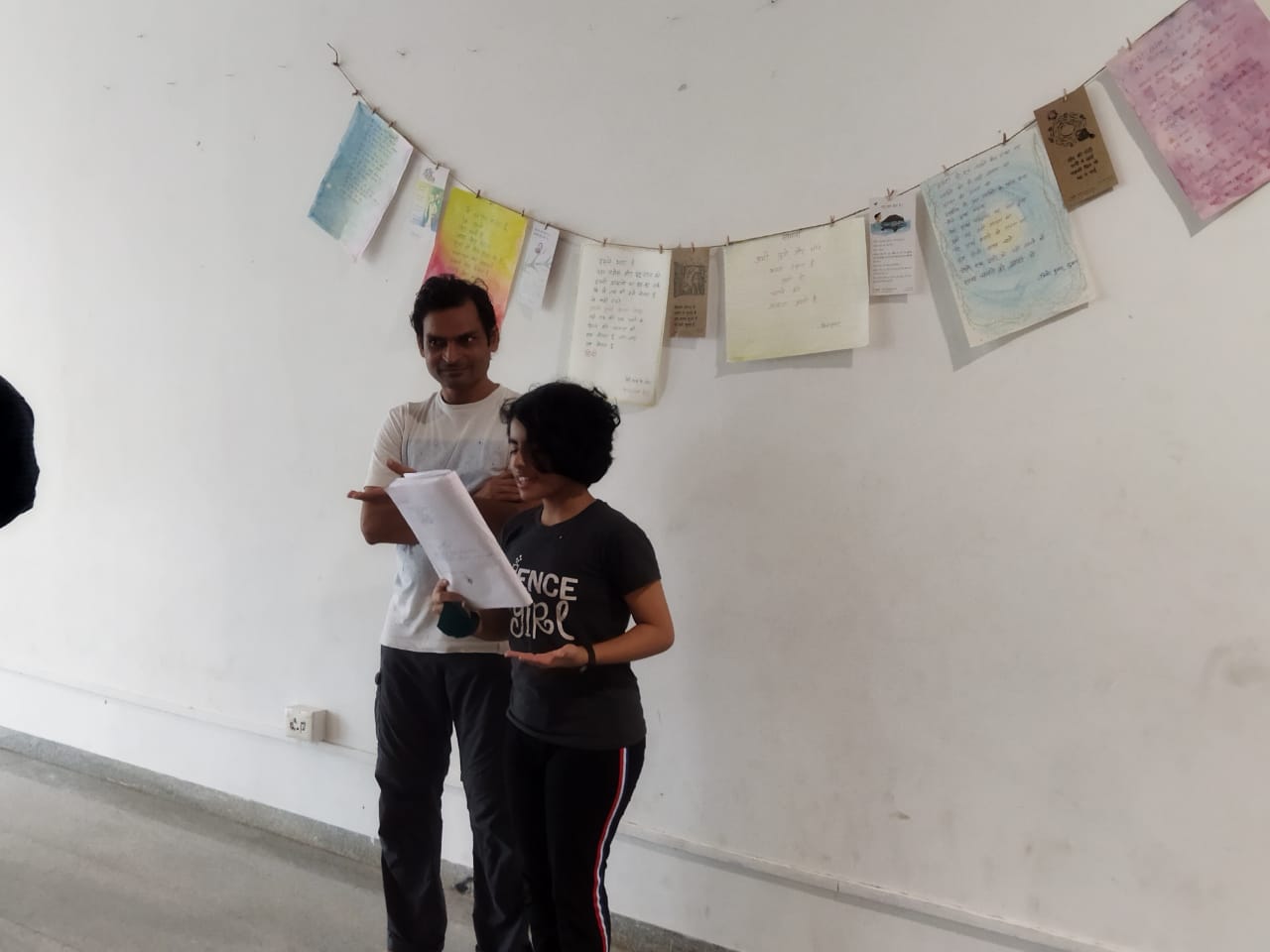
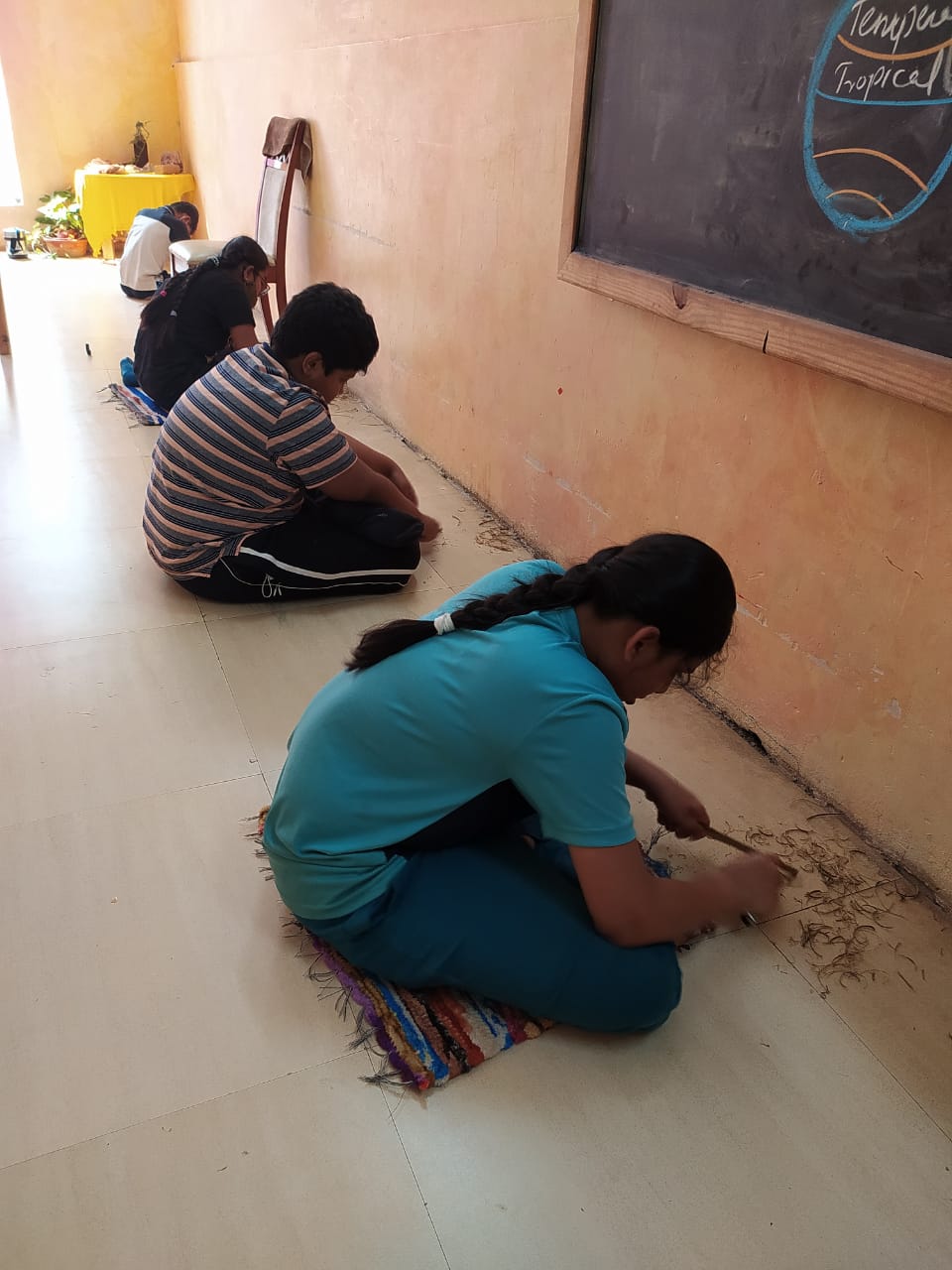
SWS provides woodworking for grades 5, 6, 7, 8 & 9. The projects are a spatula, spoon, three-legged stool and carved bowl in that order. It is all done with hand tools. As with all handwork in the Waldorf curriculum it is developmental rather than a training. It is a scientific fact that brain development has a direct relationship to working with one’s hands. It is also evident that pride of accomplishment and self-esteem come from the challenges of creating an object of practical beauty. These qualities cannot be given but must be arrived at empirically. Our students are justifiably proud of the work that they do. This is the basis and outcome of our woodworking program which is in its seventh year.
Music in the Waldorf school permeates all the lessons, not just the formal music classes. The teachers bring songs, games, and other musical activities to the children during their morning circle time, and music is woven throughout the curriculum. The music teacher sees the children twice weekly for singing, song games, theory and various instrumental experiences – all age appropriate for the specific stages of development. In the early grades special Choroi flutes are introduced to bring more consciousness into the very fingertips. Later on in the upper grades, traditional recorders are used in conjunction with the curriculum of the Middle Ages and Renaissance. In Grade Four all the children begin violin ensemble, and the string program continues through Grade Eight. Music is an art form that does not find its reflection in the outer sense world, but arises out of one’s own soul experience. Through imagination and beauty, music education in the Waldorf curriculum provides an opportunity to exercise the creative self and give expression to the healthy development of the growing human being.
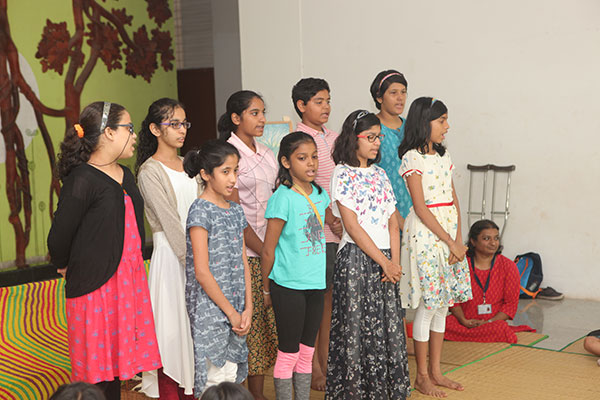
We know that education is more than the acquisition of information, rigid academic curricula, and high stakes testing. In fact, the world is changing so rapidly that no one can really predict what information our children will need to know in the future. However, it is clear that intellectual flexibility, creative thinking, independent judgment, moral discernment, refined written and oral communication skills, and the ability to collaborate effectively will be essential to success in today’s ever changing, global community. The Waldorf curriculum, pedagogy, and teaching methods are designed to nurture these capacities and more.
It is the goal of a Waldorf teacher to cultivate a sense of wonder and to inspire children to view the world, even in its most basic form, as magnificent—prompting each student to embrace life with enthusiasm, initiative, and purpose. These aims are met through an education that is rich with meaningful sense experiences, classical academics, and artistic beauty in all subject matters.
Whether our graduates become doctors, scientists, artists or musicians, the capacities developed through a Waldorf Education provide them with a foundation for success in whatever field they pursue. Professors in various academic disciplines and in a wide range of colleges and universities who have had Waldorf graduates as students corroborate this. They note that Waldorf graduates have the ability to integrate thinking, to assimilate information as opposed to memorizing isolated facts, are willing to take intellectual risks, and are leaders who take initiative.
“If you've had the experience of binding a book, knitting a sock, playing a recorder, then you feel that you can build a rocket ship—or learn a software program you've never touched. It's not bravado, just a quiet confidence. There is nothing you can't do. Why couldn't you? Why couldn't anybody?"
-Peter Nitze, a graduate of the Rudolf Steiner School of New York City, Harvard and Stanford, and successful engineer.